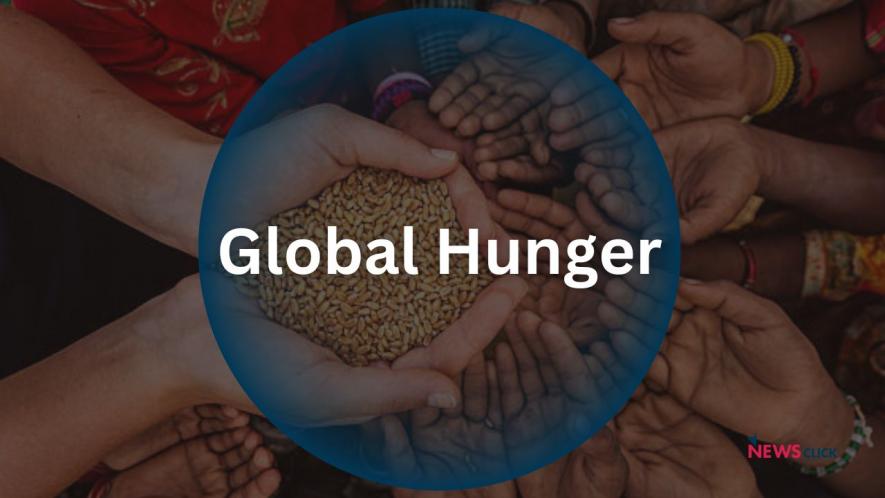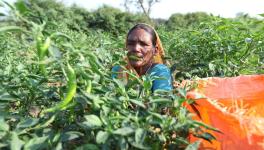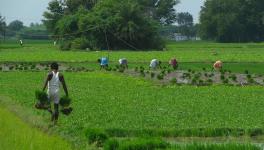Over 730 Million People Face Hunger Worldwide, End of Hunger Goal in Jeopardy: UN Report

Delhi: A new report jointly published by five United Nations specialised agencies warns that over 122 million additional people are now suffering from hunger compared to 2019, mainly due to the COVID-19 pandemic, conflicts, and extreme weather events.
The report, titled "State of Food Security and Nutrition in the World" (SOFI), also highlights the risk of failing to achieve the Sustainable Development Goal (SDG) of ending hunger by 2030.
In 2022, the number of people facing hunger ranged from 691 to 783 million, with a mid-range estimate of 735 million. This represents an increase of 122 million people compared to the pre-pandemic levels in 2019.
While global hunger figures remained stable between 2021 and 2022, certain regions experienced worsening food crises. Progress in hunger reduction was observed in Asia and Latin America, but hunger increased in Western Asia, the Caribbean, and all subregions of Africa. Africa remains the most severely affected region, with one in five people experiencing hunger, more than double the global average.
The prevalence of undernourishment in Asia is less than half that in Africa. However, Asia still houses the majority of people facing hunger – 402 million, which amounts to 55% of the total number of undernourished people in 2022. About 38% (282 million) of undernourished people live in Africa, and about 6% (43 million) in Latin America and the Caribbean, the report said.
In India, the prevalence of undernourishment is estimated to be among 16.6% of the country's total population in the 2020-22 period. Among other parametres, India fared poorly in terms of the prevalence of anaemia among its women population; the percentage of anaemic women changed marginally from 53.2% in 2012 to 53% in 2019.
UN Secretary-General António Guterres stressed the urgent need for global action to address the multiple factors driving food insecurity, ranging from conflicts to climate change. He emphasised the necessity of building resilience against these crises and shocks.
The SOFI report also highlights the dire food security and nutrition situation in 2022. Approximately 29.6% of the global population, equivalent to 2.4 billion people, suffered from moderate or severe food insecurity, lacking consistent access to food. Among them, around 900 million individuals faced severe food insecurity. The number of people unable to afford a healthy diet reached over 3.1 billion, or 42% of the global population in 2021. This represents an increase of 134 million people compared to 2019.
The report raises concerns about malnutrition, particularly among children. In 2022, 148 million children under the age of five, accounting for 22.3% of that age group, were stunted. Additionally, 45 million children (6.8%) were wasted, and 37 million children (5.6%) were overweight.
Urbanisation emerged as a significant factor impacting food systems. With nearly 70% of the global population projected to reside in cities by 2050, policymakers and organisations addressing hunger and malnutrition must consider the implications of urbanisation. The report recommends adopting a comprehensive rural-urban continuum perspective to understand the complex relationship between urban and rural areas.
The annual SOFI report is a collaborative effort by FAO, IFAD, UNICEF, WFP, and WHO to monitor progress towards ending hunger, achieving food security, and improving nutrition.
The heads of the five UN agencies stressed the need for immediate action to tackle the growing hunger crisis. IFAD President Alvaro Lario emphasised the importance of investments and political will to eradicate hunger, particularly through supporting small-scale farmers. WFP Executive Director Cindy McCain urged swift and compassionate action, highlighting the pressing need to address the resource shortages endangering vulnerable populations. WHO Director-General Dr Tedros Adhanom Ghebreyesus underscored the necessity of targeted policies to create healthier food environments, according to a UN press release.
Get the latest reports & analysis with people's perspective on Protests, movements & deep analytical videos, discussions of the current affairs in your Telegram app. Subscribe to NewsClick's Telegram channel & get Real-Time updates on stories, as they get published on our website.
























